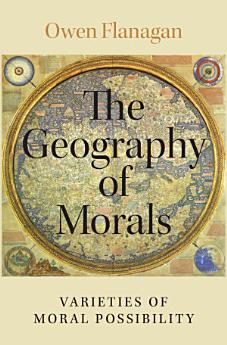The Geography of Morals: Varieties of Moral Possibility
Sep 2016 · Oxford University Press
Ebook
304
Pages
family_home
Eligible
info
reportRatings and reviews aren’t verified Learn More
About this ebook
The Geography of Morals is a work of extraordinary ambition: an indictment of the parochialism of Western philosophy, a comprehensive dialogue between anthropology, empirical moral psychology, behavioral economics, and cross-cultural philosophy, and a deep exploration of the opportunities for self, social, and political improvement provided by world philosophy. We live in multicultural, cosmopolitan worlds. These worlds are distinctive moral ecologies in which people enact and embody different lived philosophies and conceive of mind, morals, and the meaning of life differently from the typical WEIRD -- Western, Educated, Industrialized, Rich, Democratic -- person. This is not a predicament; it is an opportunity. Many think that cross cultural understanding is useful for developing a modus vivendi where people from different worlds are not at each other's throats and tolerate each other. Flanagan presses the much more exciting possibility that cross-cultural philosophy provides opportunities for exploring the varieties of moral possibility, learning from other traditions, and for self, social, and political improvement. There are ways of worldmaking in other living traditions -- Confucian, Daoist, Buddhist, Hindu, Jain, Muslim, Amerindian, and African -- that citizens in Western countries can benefit from. Cross-cultural learning is protection against what Alasdair MacIntyre refers to as being "imprisoned by one's upbringing." Flanagan takes up perennial topics of whether there is anything to the idea of a common human nature, psychobiological sources of human morality, the nature of the self, the role of moral excellence in a good human life, and whether and how empirical inquiry into morality can contribute to normative ethics. The Geography of Morals exemplifies how one can respectfully conceive of multiculturalism and global interaction as providing not only opportunities for business and commerce, but also opportunities for socio-moral and political improvement on all sides. This is a book that aims to change how normative ethics and moral psychology are done.
About the author
Owen Flanagan was born and raised in Westchester County, New York. He is the author of the classics Varieties of Moral Personality (1991) and Consciousness Reconsidered (1992). He lives in Durham, NC, where he is currently James B. Duke Professor of Philosophy and Co-director of the Center for Comparative Philosophy at Duke University.
Rate this ebook
Tell us what you think.
Reading information
Smartphones and tablets
Install the Google Play Books app for Android and iPad/iPhone. It syncs automatically with your account and allows you to read online or offline wherever you are.
Laptops and computers
You can listen to audiobooks purchased on Google Play using your computer's web browser.
eReaders and other devices
To read on e-ink devices like Kobo eReaders, you'll need to download a file and transfer it to your device. Follow the detailed Help Center instructions to transfer the files to supported eReaders.






